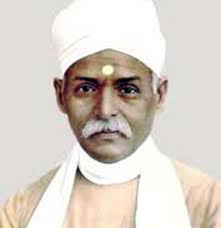Madan Mohan Malaviya:

The Prime Minister has paid tributes to Pt. Madan Mohan Malaviya on his Jayanti
- Birth: 25th December 1861, in Allahabad (now Prayagraj) in Uttar Pradesh.
- He was a great educationist, pioneer, an eloquent rhetorician, and a national leader.
- He was given the title of ‘Mahamana’ by Mahatma Gandhi and the second President of India, Dr. S. Radhakrishnan gave him the status of a ‘Karmayogi’.
- In the freedom struggle, he was midway between the Liberals and the Nationalists, the Moderates and the Extremists, as the followers of Gokhale and Tilak were respectively called.
- In 1930, when Mahatma Gandhi launched the Salt Satyagraha and the Civil Disobedience Movement, he participated in it and courted arrest.
- He was elected as the President of the Congress committee (four times) in 1909, 1918, 1932 and 1933.
- Sengupta was elected Congress chief in 1933 after president-elect Madan Mohan Malviya was arrested.
- Remembered for his role in ending the Indian indenture system, especially in the Caribbean.
- Indentured labour was a system of bonded labour that was instituted following the abolition of slavery in 1833.
- Indentured labour were recruited to work on sugar, cotton and tea plantations, and rail construction projects in British colonies in West Indies, Africa and SouthEast Asia.
- Apprehensive of the possibility of the British completely damming the flow of Ganga at Bhimgoda in Haridwar, he set up the Ganga Mahasabha in 1905.
- He was a social reformer and a successful legislator, serving as a member of the Imperial Legislative Council for 11 years (1909–20).
- Popularized the term ‘Satyamev Jayate’. However, the phrase originally belongs to the Mundaka Upanishad. The term now is the national motto of India.
- Devnagri was introduced in the British-Indian courts because of Malviya’s efforts with the British government.
- Worked immensely for Hindu-Muslim unity. He is known to have given famous speeches on communal harmony.
- He was expelled from the Brahmin community for expressing his views on caste discrimination and Brahmanical patriarchy.
- He helped establish the Hindu Mahasabha (“Great Society of Hindus”) in 1915.
- He founded the Banaras Hindu University (BHU) in 1916.
- As a journalist, he started a Hindi weekly, Abhyudaya in 1907 and made it a daily in 1915 and also Hindi monthly, Maryada in 1910.
- He started an English daily- Leader in 1909.
- Malaviya was the editor of Hindi weekly, the Hindustan and Indian Union.
- He was also the Chairman of the Board of Directors of the Hindustan Times for many years.
- Death: He died on 12th November, 1946, at the age of 84
- In 2014, he was posthumously conferred with Bharat Ratna, the country’s highest civilian award.




